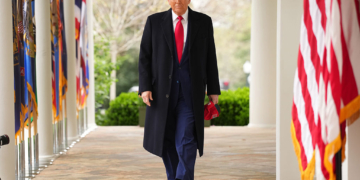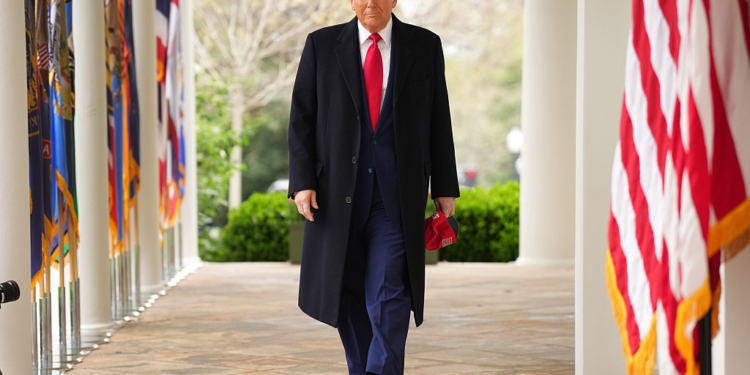New data suggests that President Donald Trump’s tariffs on foreign imports will take years to be fruitful because the U.S. economy is not ready for a wholesale shift to manufacturing.
According to NBC News, the tariffs were implemented to spur companies to move back to the U.S., bringing jobs for Americans with them, however, the data from the Bureau of Labor Statistics shows only a fraction of people in the U.S. work on farms or in manufacturing compared with previous decades.
Most Americans are now employed in service jobs, including software, finance, and health care. In the 1970s, 1 in 5 workers were employed in manufacturing. In 2025, its closer to 1 in 12. Experts are warning that putting a focus on domestic goods production could undermine the U.S.’ advantage in the knowledge economy, while costing consumers.
The Bureau further notes that formal trade apprenticeships can take years to complete, as well as reskilling the workforce and rebuilding infrastructure. Semiconductor plants can take up to four years to complete.
Companies are also hesitant to commit to long-term investments due to the nature of policy changes that could happen frequently.
Richard Mansfield, an economist at the University of Colorado Boulder said companies “won’t even start trying to hire and train people until they are convinced that there are permanent tariffs,” adding that it would more than likely compel companies to increase their prices or find alternative suppliers rather than boost the domestic production.
Economist at Arizona State University, Dennis Hoffman, said that tariffs will “end up hurting consumers across the entire United States.”
NBC News further reported that it also overlooks an important reality that the U.S. holds a global advantage in exports of services driven by business, travel, and intellectual property, with an annual services surplus of $25.5 billion vs the $156.7 billion goods deficit.
This could leave Americans with higher prices for basic goods and less money to spend or invest into areas that are excelling.
Hoffman noted that cheap goods mean “more money to save, to invest, to allocate elsewhere — we’re far better off because of access to international trade.”
“If you run a trade deficit, you’re not a loser,” Hoffman said. “We run trade deficits because we consume — our appetite for consumption is greater than our capacity to produce.”

























